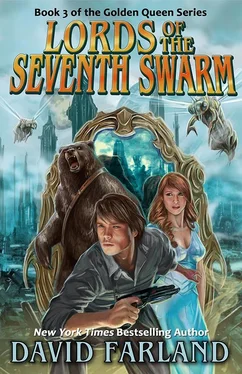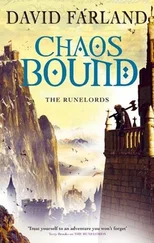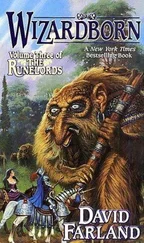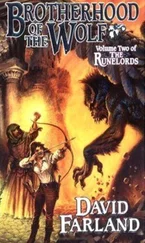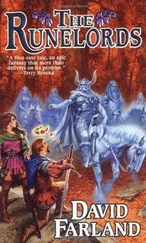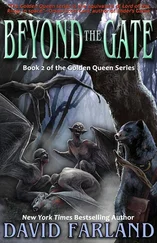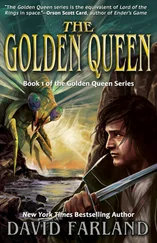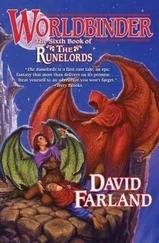David Farland - Lords of the Seventh Swarm
Здесь есть возможность читать онлайн «David Farland - Lords of the Seventh Swarm» весь текст электронной книги совершенно бесплатно (целиком полную версию без сокращений). В некоторых случаях можно слушать аудио, скачать через торрент в формате fb2 и присутствует краткое содержание. Жанр: Фантастика и фэнтези, на английском языке. Описание произведения, (предисловие) а так же отзывы посетителей доступны на портале библиотеки ЛибКат.
- Название:Lords of the Seventh Swarm
- Автор:
- Жанр:
- Год:неизвестен
- ISBN:нет данных
- Рейтинг книги:3 / 5. Голосов: 1
-
Избранное:Добавить в избранное
- Отзывы:
-
Ваша оценка:
- 60
- 1
- 2
- 3
- 4
- 5
Lords of the Seventh Swarm: краткое содержание, описание и аннотация
Предлагаем к чтению аннотацию, описание, краткое содержание или предисловие (зависит от того, что написал сам автор книги «Lords of the Seventh Swarm»). Если вы не нашли необходимую информацию о книге — напишите в комментариях, мы постараемся отыскать её.
Lords of the Seventh Swarm — читать онлайн бесплатно полную книгу (весь текст) целиком
Ниже представлен текст книги, разбитый по страницам. Система сохранения места последней прочитанной страницы, позволяет с удобством читать онлайн бесплатно книгу «Lords of the Seventh Swarm», без необходимости каждый раз заново искать на чём Вы остановились. Поставьте закладку, и сможете в любой момент перейти на страницу, на которой закончили чтение.
Интервал:
Закладка:
“In an effort to abolish the slaughter, the Qualeewoohs focused their research efforts. The Qualeewoohs did not seek to protect themselves from their neighbors, as humans did. Mankind developed all sorts of fascinating myths about how other tribes of humans were ‘evil’ and inferior so we could continue to justify our war efforts.
“But among Qualeewoohs, who could fly, there was no boundary between peoples. A global language developed early in their civilization, along with two or three very similar global cosmologies, and everyone understood one another. One Qualeewooh could join with any flock he or she chose, and, it appears to me, the Qualeewoohs’ territorial instinct never developed as strongly as did mankind’s.
“And there is one more thing you must understand: the Qualeewoohs were brilliant mathematicians. They could estimate populations of animals, count their citizens, study the prevailing weather, then calculate accurately how many of their own people they could supply with food and water.
“So when the Qualeewoohs turned to the problem of war, they took a pragmatic approach. Instead of trying to search endlessly for new sources of food and water, instead of trying to defend themselves from the inevitable depredations of others-their technology focused on self-control.”
“You mean to limiting their numbers?” Gallen asked.
“No,” Felph said. “That was but a small part of their program. I mean that they turned toward social and genetic manipulation. That they practiced genetic manipulation is obvious. We’ve found fossilized plants from the tangle and compared their DNA to that in current samples. The dew trees, which serve as the platform for all other life here on Ruin, show a common pattern of genetic manipulation across twenty-three separate species. The Qualeewoohs inserted the instructions for a common root and hibernation system through all those species. It is only because of these genetic manipulations that any life at all still thrives on this planet.
“But even more importantly than their manipulations of the flora and fauna, they developed a genetic upgrade which they spread among their own kind. They inserted a gene into their thirty-second chromosome that makes it terrifying, utterly intolerable, for one Qualeewooh to be near another adult of the same sex. The very sight of an adult Qualeewooh of the same sex sends both individuals into flight. “
Gallen considered. The Qualeewoohs had not been territorial, but by assuring that any two Qualeewoohs of the same sex who saw each other would immediately flee, you created a tremendous buffer zone between territories. Yet something more happened. You dismantled society. The Qualeewoohs who had developed the technology he’d seen here had been flock animals, nesting together. Social, communicative. But they’d doomed their descendants to become solitary hunters, living in exile.
To Gallen the implications seemed horrifying.
Felph looked up at him, a gleam in his dark blue eyes, and stroked his beard. “Mankind chose to tolerate violence, to seek eternal expansion in the hopes of outrunning his own overpopulation. But the Qualeewoohs, in spite of the fact that they are raptors, could not live with such a choice. For them, the only purpose civilization ever served was to find the root of their own violent nature, then destroy it. Better to end civilization, they decided, than to live with the madness.”
Tallea said, “How sad. Think of all they lost!”
But Orick simply shook his head. “How noble. Think of all they gained!”
“Indeed!” Felph said. “You see it. The Qualeewoohs are utterly unlike us in so many ways. With mankind, our whole system of values is incongruous, illogical. But the Qualeewoohs’ society works for them-in many ways far better than ours ever worked for us.
“That is why I’ve stayed here for so long. I’ve studied their social relations, considered the implications in our own society, weighing them against the dronon threat.”
Gallen found Felph’s tone very disturbing, incongruous. Half an hour ago, he’d talked casually about how humans slaughtered modern Qualeewoohs. Now he spoke reverently of their respect for life. Gallen recognized that Felph’s respect for the Qualeewoohs was directed toward “the ancestors,” the Qualeewooh gods, as he’d called them earlier.
Modern Qualeewoohs, in spite of the fact that they were kindly philosophers, in spite of the fact that they glued spirit masks to their faces in order always to be guided by their ancestors, were somehow not worthy of Felph’s respect. He saw them as creatures, not creators.
His position annoyed Gallen. Felph seemed to have an almost schizophrenic attitude about the creatures.
“What conclusions have you reached?” Maggie asked, and there was an edge to her voice, a threat. She, too, was perturbed by Felph’s attitudes.
Gallen recognized the source of Maggie’s concern. Felph’s genetic experiments, the way he treated the people above, the way he enslaved his own children-all suggested Felph was involved in something sinister. Could he be an aberlain, Gallen wondered-altering the human genome to fit his own whims, seeking to modify his own children as the Qualeewoohs had done? Gallen glanced at Felph’s beautiful, silent children. His slaves.
“Conclusions? None, for certain,” Felph said. “I suspect the Qualeewoohs’ solution was at once noble and desperate beyond anything I could condone. They doomed their descendants to lives of isolation. They doomed their species to eventual extinction. And they lost too much in their quest for peace-the opportunity for social discourse that we as humans take for granted.
“Still, I could almost congratulate them for the devil’s bargain they made, if not for the dronon. In time, the Qualeewoohs’ shortsightedness will condemn this world. The Qualeewoohs never anticipated alien invaders, either human or dronon. This world, with its dull red sun, is a perfect habitat for the dronon. When the Lords of the Swarms discover this place, as they surely will, the Qualeewoohs won’t be able to defend themselves.”
“Perhaps that won’t happen for a long time,” Gallen said.
“One could only hope,” Felph replied. “Unfortunately, what seems long to us is actually a short time on a cosmic scale. Five hundred years, a thousand? The Qualeewoohs don’t have that long.”
Gallen said, “Don’t you think mankind can find an answer to the problem?”
“No,” Felph answered. “What answer could we come up with? The dronon have had plenty of time to duplicate most of our higher technology in the past eighty years. A full-fledged war is almost too horrific for either species to consider, not when entire worlds would burn to ash.
“Mankind, I think, would gladly strike up negotiations for treaties with the dronon, but the dronon psyche does not allow for such things. They seek dominion above all, while mankind putters about, trying to find peaceful solutions to the problem.
“I hear-I hear,” Felph continued, “that some humans back in the Milky Way have finally won the title Lords of the Sixth Swarm. But what will they do with it?”
“I couldn’t say,” Gallen answered, stifling the urge to laugh at the irony. What would Felph think if he knew that at this very moment he was entertaining the Lords of the Sixth Swarm?
“I’ll tell you what they should do,” Felph said emphatically. “They should go to each dronon queen in each hive of the Sixth Swarm and sterilize them. Then let it be known to the lords of the other swarms that if they challenge mankind again, and mankind wins, this will happen to their swarms. That’s what we should do! With the extinction of their swarms as a threat, the dronon would never dare challenge us again.”
Читать дальшеИнтервал:
Закладка:
Похожие книги на «Lords of the Seventh Swarm»
Представляем Вашему вниманию похожие книги на «Lords of the Seventh Swarm» списком для выбора. Мы отобрали схожую по названию и смыслу литературу в надежде предоставить читателям больше вариантов отыскать новые, интересные, ещё непрочитанные произведения.
Обсуждение, отзывы о книге «Lords of the Seventh Swarm» и просто собственные мнения читателей. Оставьте ваши комментарии, напишите, что Вы думаете о произведении, его смысле или главных героях. Укажите что конкретно понравилось, а что нет, и почему Вы так считаете.
